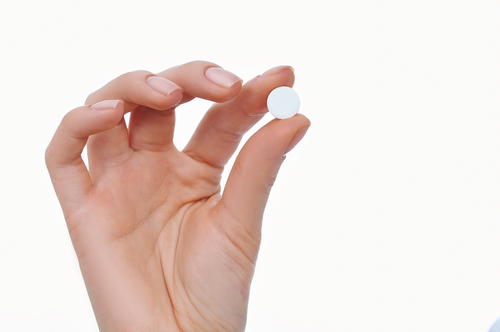My diagnosis.
Immediately after I suspected MS, I went to see my doctor and begged for a neurology consult. I knew that what I was experiencing was neurological, and I was pretty confident it was MS due to my history. I asked for IV steroids immediately. My doctor laughed at me. She didn’t believe me. She said no one was going to give me IV steroids. She called me hysterical and gave me a prescription for Valium, which I willingly took at the time. I responded to this by doing what I had started doing so often; I burst into tears. Finally, I was referred to a neurologist: my appointment was scheduled two weeks from that day.
During the fifth week, I continued to research conventional treatment for MS. I felt scared and hopeless as I became more and more disabled. I couldn’t walk up or down stairs without using a cane and holding onto the rail. I had already fallen three times. I couldn’t raise my toes on my right foot. This made driving difficult and frankly dangerous. I had to lift my whole foot and put it on the pedals. I was rapidly losing control over my body.
I couldn’t wait two weeks for the appointment. I walked into the neurologist’s office a week before my scheduled appointment, and surprisingly, the doctor agreed to see me. I just couldn’t take it anymore—not knowing what my body was doing, getting worse each day. I was a mess. Through my tears, I explained my history to doctor number four. I pressed for IV steroids because I knew in my heart that this was MS. He scheduled me for two MRI’s for the following week, one of the brain and one of the spine, both with contrast.
What’s diet got to do with it?
During this first appointment with the neurologist, I mentioned that I had been researching MS on the Internet and that I kept seeing stories of women who’s MS symptoms had improved simply by making dietary changes. I asked him what he thought about cutting out meat, processed food, sugar, dairy, and gluten. My doctor told me that there was no evidence that diet had any impact on the course of the disease or the severity of symptoms.
During the next week, I got the two MRI’s and kept the initial appointment with my neurologist, which was now our followup appointment. I was officially diagnosed with MS on March 20, 2014. This was six weeks after the onset of symptoms. MS had hit me fast and hard. I was still working, but I couldn’t concentrate. I couldn’t write. It was hard to type. I could barely walk. Some co-workers were questioning whether I should continue to work. My future was bleak.
I had training for work that had been pre-planned six months previously, and I was scheduled to go to the States in two days. My neurologist told me that we would talk about preventative medication when I returned from my trip in two weeks. I received 1000 mg of IV prednisone that day, 2000 mg the next morning, and oral prednisone to take with me on my trip.
My head was spinning. I didn’t know how I was going to make it through a 12-hour flight let alone concentrate on spouse abuse training. During my trip, an airline escort had to meet me at the gate with a wheelchair and wheel me to the connecting flight. All I could think of was how I was going to continue to deteriorate, and I wondered what my future would look like. I spent the majority of the next two weeks reading about MS.
I returned to Germany two weeks later and started taking Tecfidera, a preventative MS medication, twice daily. I was also taking a muscle relaxer, an anti-anxiety medication, and a pain killer for the severe leg cramps. In addition, I had been taking a twice-daily steroid inhalant for asthma for more than ten years, and I kept a rescue inhaler with me at all times to use as needed. I also suffered from severe migraines since childhood, and I took Imitrex for this as needed.
In my research of conventional treatment for MS, all I read about was how the disease was “incurable” and about how I would need to set up a plan for “progressive disability” and “wheelchairs, home health aides, and Social Security Disability.” For about three days, I was consumed with dark thoughts. I didn’t want my new husband to have to care for me like that. For those three days, I wanted to die. Then I continued my research.

Organic Health Planet
July 24, 2017 at 3:26 am
Organic Health Planet is a Organic food blog which give latest information about uses & benefits of organic food for healthy body and weight loss.
http://organichealthplanet.com/